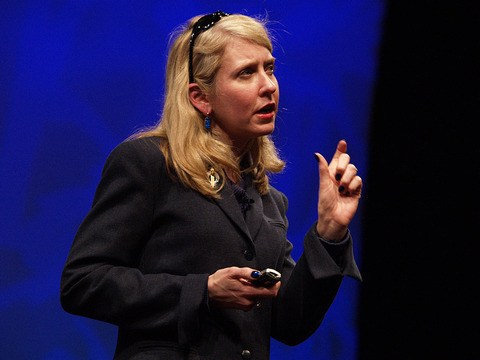
 It was by coincidence - or was it? - that I read Thomas Sowell's "The Vision of the Anointed" and Virginia Postrel's "The Future and Its Enemies" back to back this month. Sowell and Postrel are two of the nation's most prominent conservative/libertarian thought leaders, so reading them consecutively made for a nice continuity. Both railed against people who claim to offer solutions when really there are only trade-offs (Sowell's point) and against people who either oppose progress or think they can control it (Postrel's point).
It was by coincidence - or was it? - that I read Thomas Sowell's "The Vision of the Anointed" and Virginia Postrel's "The Future and Its Enemies" back to back this month. Sowell and Postrel are two of the nation's most prominent conservative/libertarian thought leaders, so reading them consecutively made for a nice continuity. Both railed against people who claim to offer solutions when really there are only trade-offs (Sowell's point) and against people who either oppose progress or think they can control it (Postrel's point).If you'll allow me a quick explanation of these two points for further context. Sowell is saying that when it comes to government "solutions," their adherents fail to understand or articulate that those efforts come with direct costs and opportunity costs: subsidizing one thing makes everything else more expensive, while regulating something creates unintended consequences that may end up blunting or even reversing the very thing the regulation is trying to safeguard. Postrel is saying that mankind is ever striving forward, and it is impossible and destructive to either push back against the future or to try to dictate from the present exactly what the future is going to look like.
I found myself nodding vigorously to both authors. I am an unabashed capitalist and optimist. I desire for people to be free to innovate, I want a thousand flowers to bloom, and I think everyone is better off as a result. Perhaps we are nostalgic for the simplicity, purity, and kindness of past times, but would we really want to go back to a time when it took months to get to Europe, when millions suffered from polio and died from rubella, or when we all had to literally break our backs in the fields and factories just to eke out a subsistent existence?
However. I am not ignorant of the dark side of progress, nor naive to its impacts on individuals, communities, and societies. I celebrate the constant churn of capitalism, but I am aware that it destroys and disrupts along the way, and I understand that the fundamental shifts that result create new winners and new losers.
Again, I would not want it any other way. We used to be an agricultural economy, and now we don't employ nearly as many people in agriculture because we innovated our way to greater efficiency, greater productivity, and greater abundance. We used to be an industrial economy, and and now we don't employ nearly as many people in industry because we innovated our way to greater efficiency, greater productivity, and greater abundance. Innovation chews up jobs, companies,and even entire industries, but spits out far greater gains to our economy, our quality of life, and our ability to flourish even more.
Nevertheless, it matters how we respond to this incessant and punishing cycle. It matters how those increases in wealth, happiness, and potential are shared. And so I stand with any who are bullish on the future and on the ability of mankind to do incredible and marvelous things if only such ingenuity is encouraged and fed. And I also stand with any who are thoughtful about what we ought to do to, without squelching our innate drive to innovate, make sure that the fruits of those efforts are enjoyed by all and not just a few.


No comments:
Post a Comment